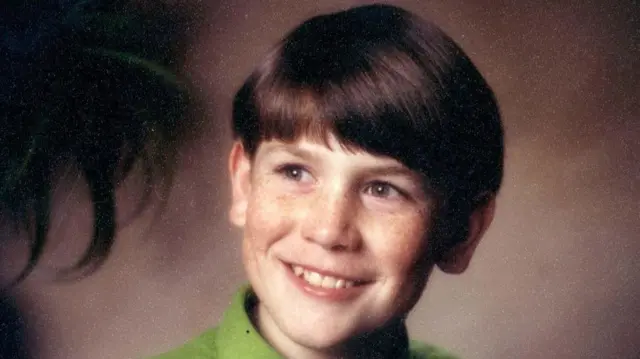'Kind and caring'published at 16:24 GMT 17 February
Mr Barker explains how James’ maternal grandparents moving back to Buncrana made his wife want to move back to Ireland.
He says it was a great time for James who “loved” being there despite missing his father.
Mr Barker says James was a “kind and caring boy”.
He recalls how James told him on a fishing trip how much he loved living in Ireland and that the only thing he missed was “not having me there”.
